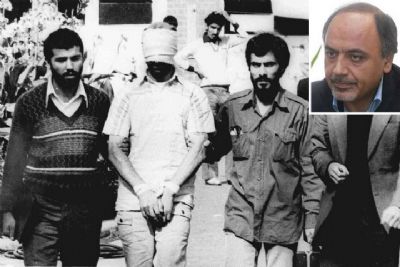Iran is refusing to withdraw its candidate for its next UN ambassador, Hamid Aboutalebi. It has requested a special meeting of the UN Committee on Relations with the Host Country "on the United States' refusal to grant Aboutalebi a visa, describing the decision as a dangerous precedent that could harm international diplomacy."
The Obama administration finally indicated that it would not issue Aboutalebi a visa in order to take up the post, "over concerns about his involvement" in the 1979 hostage crisis. On April 11, 2014 White House Press Secretary Jay Carney said: "We have informed the United Nations and Iran that we will not issue a visa to Mr. Abutalebi,"he said. "We certainly share the intent of the bill passed by Congress as we have already told the U.N. and Iran that we will not issue a visa."
The administration's move came after Congress adopted a bill which would "impose a blanket prohibition, denying entry to the United States to an individual found to be engaged in espionage, terrorism or a threat to national security."
Aboutalebi was a member of the Muslim Students Following the Imam's Line, the group of terrorists who seized the United States Embassy in Tehran in 1979 and held 52 Americans diplomats hostage for 444 days. Moreover, according to the New York Times, Aboutalebi has admitted he served as a translator for the Iranians who seized the Embassy and the hostages.
He is also accused of being an accomplice in a murder plot that killed a prominent Iranian government defector, Mohamed Hossein Naghdi, in Rome in 1993.
April 14, 2014
Iran requests UN committee meeting to discuss U.S. ban on Iran envoy
Date
April 14, 2014
Title
Letter by Iran sent to the UN Committee on Relations with the Host Country on the U.S. visa denial
Original Source

